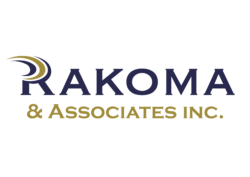In today’s interconnected world, global information security has become a critical concern for organizations across industries. With the increasing reliance on technology and the growing threat landscape, businesses need to ensure the confidentiality, integrity, and availability of their data. One of the key players in this arena is auditing firms, which play a crucial role in evaluating and improving information security practices.
Auditing firms are responsible for assessing the effectiveness of an organization’s information security controls and providing recommendations for improvement. They conduct comprehensive audits, examining policies, procedures, and technical controls to identify vulnerabilities and gaps. By leveraging their expertise and industry best practices, auditing firms help organizations enhance their information security posture.
There are several reasons why organizations should engage auditing firms to bolster their information security. Firstly, auditing firms bring a fresh perspective to the table. As external entities, they can provide unbiased insights into an organization’s security practices. This external viewpoint is invaluable in identifying blind spots and areas where improvements can be made.
Secondly, auditing firms possess deep domain knowledge and experience in information security. They stay updated with the latest cyber threats, attack vectors, and regulatory requirements. This enables them to assess an organization’s security controls against industry standards and best practices. By leveraging this expertise, organizations can ensure that their security measures are robust and aligned with current threats and compliance requirements.
Thirdly, auditing firms have access to specialized tools and technologies that enable them to conduct thorough and efficient audits. These tools help automate the collection and analysis of security data, allowing auditors to focus on the interpretation and evaluation of results. By using these tools, auditing firms can uncover hidden vulnerabilities and provide organizations with actionable recommendations to enhance their security posture.
Furthermore, auditing firms provide a level of assurance to stakeholders, including customers, partners, and investors. By engaging an auditing firm, organizations demonstrate their commitment to information security and their willingness to undergo independent scrutiny. This can enhance trust and confidence in the organization’s ability to protect sensitive data.
While auditing firms play a crucial role in enhancing information security, organizations should also be proactive in their approach. They should view audits as opportunities for improvement rather than mere compliance exercises. Organizations should collaborate with auditing firms to develop a holistic information security strategy that aligns with their business objectives and risk appetite.



